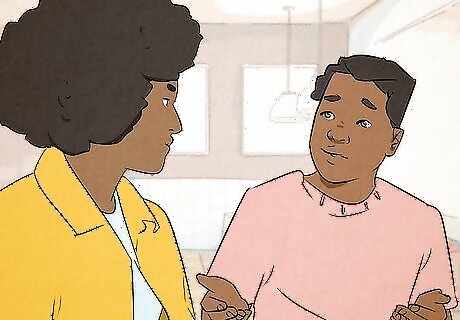
views
- She/her/hers pronouns typically refer to a person who currently identifies as a woman or girl.
- Pronouns such as she/her, he/him, or they/them only relate to gender identity and have nothing to do with a person’s sexual orientation or biological sex.
- Be sure to use the pronouns a person prefers when referring to them.
What do she/her/hers pronouns mean?

She/her/hers pronouns are typically used to refer to women or girls. Pronouns, or words that are used in place of nouns, allow us to identify someone without using or knowing their name. Someone who uses she/her/hers pronouns is making it clear that they currently identify as female and would like to be referred to as such in conversation. The most commonly used pronouns include the following: She/her/hers: currently identifies as female. He/him/his: currently identifies as male. They/them/theirs: currently identifies as non-binary or gender non-conforming (best to use when you’re unaware of a person’s pronouns.) She/They, He/They, or “any pronouns” indicate that you can use either or any of their listed pronouns.
Using She/Her/Hers Pronouns

Anyone identifying as a female can use she/her/hers pronouns. For example, if you currently identify as a woman or girl, you might consider adding “she/her” to the end of your email signature or social media accounts. This shows others your pronouns so they know how to address you in conversation. Remember, always ask what someone’s pronouns are before making an assumption based on their appearance—if you’re not sure, just use they/them! If someone asked you what your pronouns are and you currently identify as female, you might say, “My name is Jane, and my pronouns are she/her. What are yours?” To ask someone's pronouns, try, “Hi there, nice to meet you! What are your pronouns?” If you want to refer to someone in conversation but don’t know their pronouns, use they/them pronouns like, “They left their backpack at their desk,” instead of “She left her backpack pack at her desk,” etc.
Pronouns & Sexuality

Gender pronouns have nothing to do with a person’s sexuality. You might be wondering if a person’s pronouns have anything to do with who they’re sexually attracted to, and the answer is no! Pronouns simply refer to the gender (or no gender if they’re nonbinary) the person identifies with and has nothing to do with their biological sex assigned at birth or their sexual orientation. Gender identity is one’s sense of self concerning their gender. That can mean they identify as a man, woman, both, or neither and is not dependent on their sex assigned at birth. Sex refers to the biological status they were assigned at birth, which can be male, female, or intersex. Sexuality refers to one’s sexual orientation, such as heterosexual, homosexual, bisexual, pansexual, etc.
Apologizing When You Get Them Wrong

If you misgender someone, simply apologize and correct yourself. Accidents happen! If you accidentally misgender someone by choosing a pronoun that they don’t identify with, such as she/her, when they identify as he/him, you might say, “I’m sorry, I didn’t mean to misgender you. I’ll be sure to use the correct pronouns in the future.” Gender dysphoria, or the psychological distress a person experiences when they’re misgendered, can occur when we don’t ask a person's pronouns, making it important to clarify before gendering someone. Just because a person looks or sounds a certain way doesn’t mean that they identify with the gender they may physically present to you as. Don’t beat yourself up about accidentally misgendering someone. As long as you consciously try to correct your mistake in the future, it’s best to move on.

















Comments
0 comment